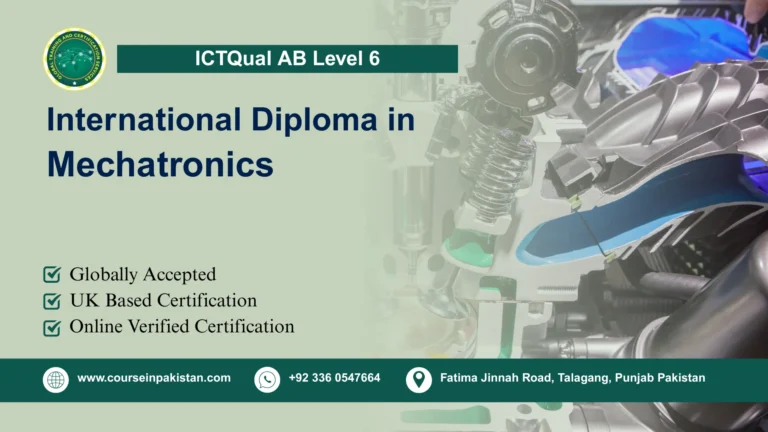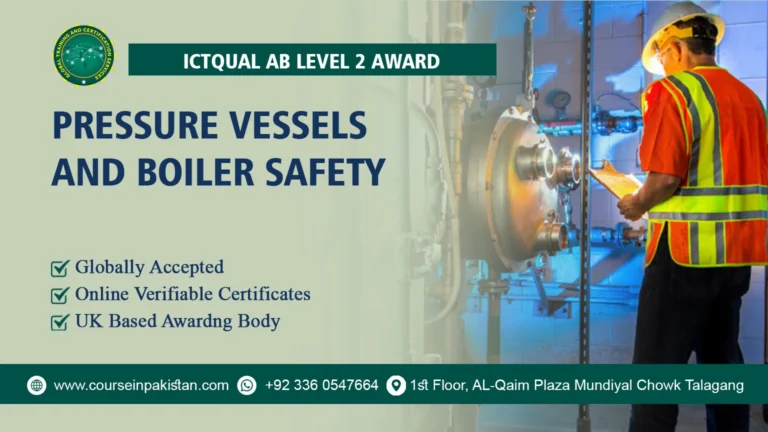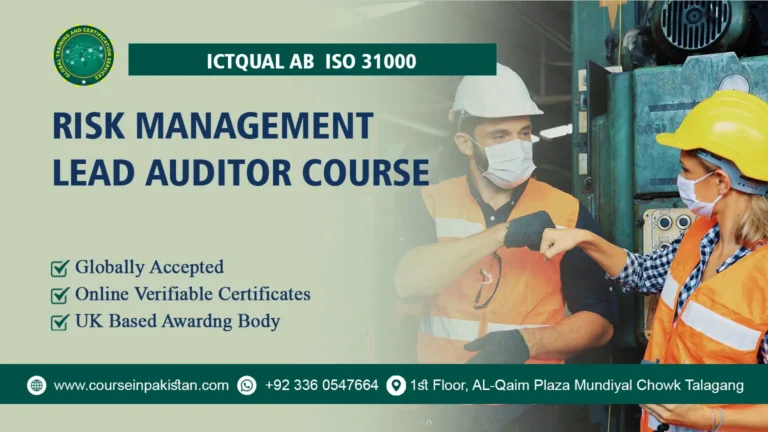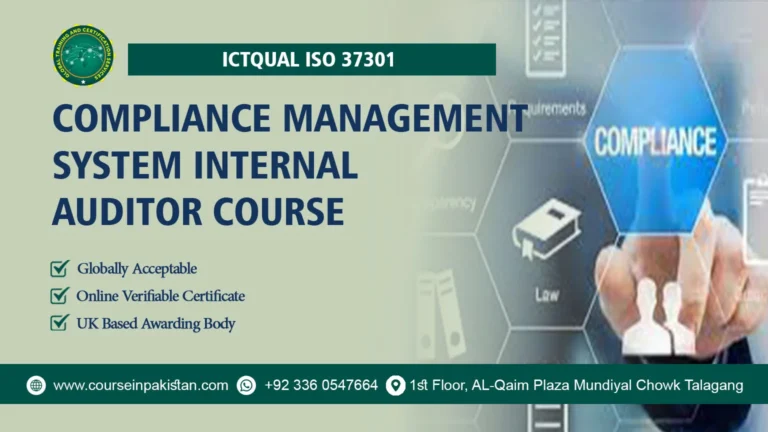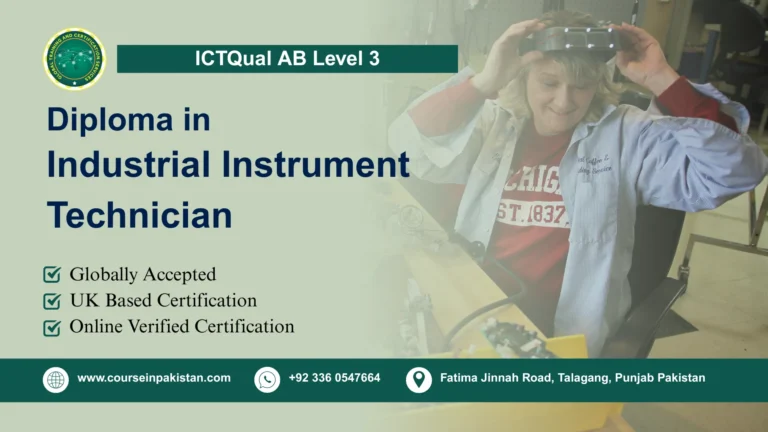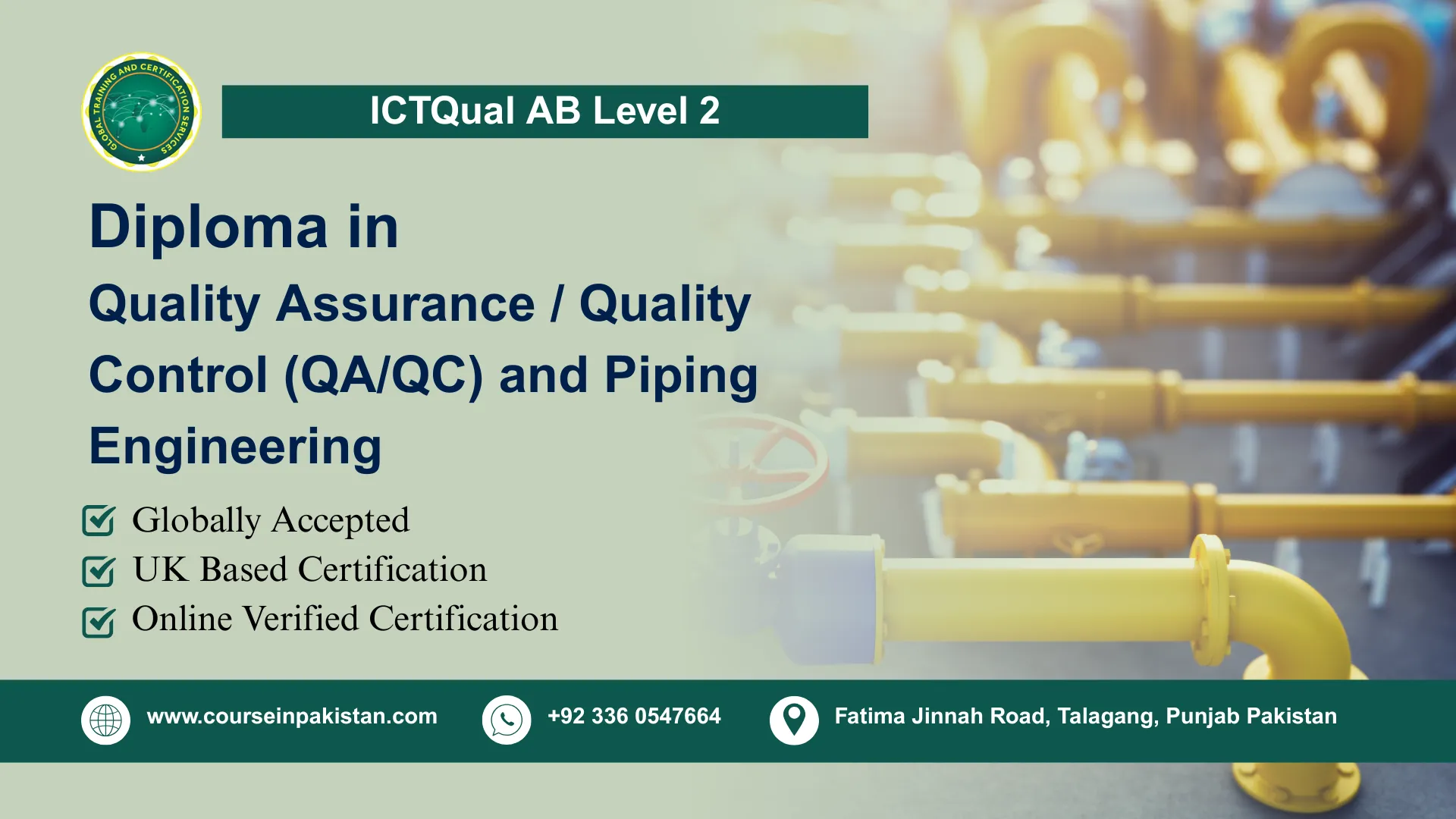
The ICTQual AB Level 2 Diploma in Quality Assurance / Quality Control (QA/QC) and Piping Engineering is a comprehensive program designed to provide learners with the foundational knowledge and practical skills required to excel in the field of QA/QC within the piping engineering and industrial sectors. This course is ideal for those seeking to understand the critical aspects of quality management systems, inspection techniques, and industry best practices. Learners will gain hands-on experience in evaluating engineering processes, interpreting technical drawings, and applying QA/QC standards to ensure compliance with industrial regulations. Through a blend of theoretical learning and practical exercises, the course aims to equip students with the confidence and competence needed to contribute effectively to QA/QC processes in professional engineering environments.
This qualification is tailored for aspiring engineers, technical personnel, and quality control professionals who wish to advance their careers in the piping and construction industries. Participants will develop a deep understanding of the principles of quality assurance, non-conformance identification, and corrective actions within complex engineering projects. Additionally, the course covers essential topics such as risk assessment, documentation control, and project-specific QA/QC procedures. By completing this program, learners will be prepared to support industrial projects with efficiency and accuracy, ensuring that engineering standards are maintained and that piping systems are safe, reliable, and compliant with industry regulations.
Course Overview
The ICTQual AB Level 2 Diploma in QA/QC and Piping Engineering is structured to provide learners with a robust understanding of the fundamentals of quality assurance and quality control in industrial and piping contexts. The program covers core areas such as the interpretation of piping drawings, inspection of materials and welds, and the application of QA/QC procedures to monitor and maintain engineering standards. Students will learn how to conduct inspections, document findings, and implement corrective measures to ensure quality compliance. This approach ensures that learners are not only familiar with industry standards but are also capable of applying them practically within a professional engineering environment.
In addition to technical skills, the course emphasizes the development of analytical thinking, problem-solving, and decision-making abilities. Learners will explore topics such as risk management, safety compliance, and process improvement strategies that are crucial for quality assurance roles. By integrating practical exercises and real-world case studies, the program ensures that participants can confidently execute QA/QC tasks across diverse engineering projects. Completing this diploma prepares learners to play a pivotal role in maintaining project quality, minimizing errors, and enhancing the overall efficiency and reliability of piping systems in industrial applications.
Key Highlights of the Course:
- Comprehensive coverage of QA/QC principles in piping engineering
- Practical training on interpretation of engineering drawings and inspection techniques
- Hands-on exercises in quality documentation, reporting, and compliance monitoring
- Focus on risk assessment, corrective actions, and industrial safety standards
- Preparation for professional QA/QC roles in engineering and construction sectors
Course Benefits
Enhanced Technical Knowledge
- Gain a strong understanding of QA/QC principles, processes, and piping engineering standards
- Learn to interpret technical drawings and inspection requirements accurately
Practical Skill Development
- Hands-on experience in conducting inspections, identifying defects, and implementing corrective actions
- Learn documentation and reporting techniques essential for quality control
Career Advancement
- Equip yourself for entry-level QA/QC roles and technical positions in industrial projects
- Increase employability in the piping, construction, and engineering sectors
Industry Recognition
- Earn a recognized Level 2 qualification that demonstrates competence in QA/QC and piping engineering
- Stand out in the job market with practical and theoretical knowledge aligned with industry standards
Completing this course ensures that learners are well-prepared to contribute effectively to QA/QC operations, uphold engineering standards, and pursue further professional development in the field.
Course Study Units
This qualification, the ICTQual AB Level 2 Diploma in Quality Assurance / Quality Control (QA/QC) and Piping Engineering, consists of 5 mandatory units.
- Intermediate QA/QC Principles: Sampling, Tolerances & Conformance Criteria
- Piping Engineering Practices: Layouts, Joints & Weld Quality
- Non‑Destructive Testing (NDT) Methods: Dye Penetrant, Ultrasonic, Radiographic
- Inspection & Audit Procedures: Test Plans, Checklists & Corrective Actions
- Regulatory Compliance & Industry Standards for QA/QC and Piping
Learning Outcomes
Kickstart your career in engineering quality management with the ICTQual AB Level 2 Diploma in Quality Assurance / Quality Control (QA/QC) and Piping Engineering, a comprehensive program designed to equip learners with the technical knowledge, practical skills, and industry insights needed to excel in QA/QC and piping projects.
1. Intermediate QA/QC Principles: Sampling, Tolerances & Conformance Criteria
- Explain the fundamentals of quality assurance and quality control in engineering projects
- Apply sampling techniques to assess material and process quality
- Interpret tolerance specifications and conformance criteria to ensure compliance with standards
- Identify non-conforming materials and processes and recommend corrective actions
2. Piping Engineering Practices: Layouts, Joints & Weld Quality
- Read and interpret piping layouts, drawings, and schematics accurately
- Evaluate piping joints, welds, and connections for compliance with engineering standards
- Apply inspection techniques to detect defects and ensure system integrity
- Suggest improvements to piping design and assembly for enhanced quality
3. Non-Destructive Testing (NDT) Methods: Dye Penetrant, Ultrasonic, Radiographic
- Demonstrate practical knowledge of NDT methods and their applications in QA/QC
- Conduct dye penetrant, ultrasonic, and radiographic testing on engineering materials
- Identify defects, discontinuities, or inconsistencies in materials and welds
- Interpret test results to support quality assessment and project compliance
4. Inspection & Audit Procedures: Test Plans, Checklists & Corrective Actions
- Develop and implement inspection plans, test schedules, and checklists
- Conduct audits to assess adherence to QA/QC procedures and standards
- Recommend corrective actions to resolve quality issues or non-conformities
- Maintain accurate and detailed documentation of inspections and audits
5. Regulatory Compliance & Industry Standards for QA/QC and Piping
- Understand regulatory requirements and industry standards related to QA/QC and piping engineering
- Apply standards and best practices to ensure safety, quality, and compliance
- Evaluate engineering projects against industry benchmarks and regulatory guidelines
- Ensure processes, materials, and outcomes meet legal and professional requirements
By completing this diploma, learners will gain the confidence, competence, and recognized qualification required to contribute effectively to QA/QC processes, maintain industry standards, and advance their careers in the piping and engineering sectors.
Who is This Course For?
This course is designed for individuals who are motivated to build a career in QA/QC and piping engineering, equipping them with the skills and knowledge needed to succeed in industrial projects.
- Aspiring QA/QC Professionals: Seeking entry-level roles in industrial QA/QC projects
- Junior Engineers and Technicians: Wanting to strengthen knowledge of piping layouts, weld inspection, and standards
- Construction and Piping Personnel: Involved in fabrication, installation, or inspection of piping systems
- Individuals Seeking Industry Certification: Aiming to gain a recognized qualification for career advancement
- Problem-Solvers and Detail-Oriented Professionals: Interested in analyzing processes, identifying defects, and improving quality outcomes
By the end of this course, learners will have the technical expertise and practical skills to confidently contribute to QA/QC and piping engineering projects.
Future Progression
- QA/QC Technician or Inspector roles in piping, construction, or industrial projects
- Senior Piping or Quality Control Engineer positions with experience and training
- Specialized NDT Technician or Welding Inspector roles
- Supervisory or Team Lead positions in QA/QC departments
- Advanced Diplomas or Level 3/Level 4 QA/QC Engineering qualifications for career growth
Academic Pathways:
- ICTQual AB Level 3 Diploma in QA/QC and Piping Engineering for advanced technical knowledge
- Professional certifications in Non-Destructive Testing (NDT) for specialized QA/QC roles
- Diplomas in Welding Inspection and Piping Fabrication for industry specialization
- Bachelor’s Degree in Mechanical, Industrial, or Piping Engineering for long-term career development
Conclusion
The ICTQual AB Level 2 Diploma in Quality Assurance / Quality Control (QA/QC) and Piping Engineering equips learners with the essential knowledge, practical skills, and industry-recognized qualification required to succeed in QA/QC and piping roles. Through a combination of theoretical learning and hands-on training, participants will develop the competence to perform inspections, conduct audits, apply NDT methods, and ensure compliance with industry standards. This diploma provides a solid foundation for career progression, specialized roles, and further academic development in the engineering and industrial sectors.

